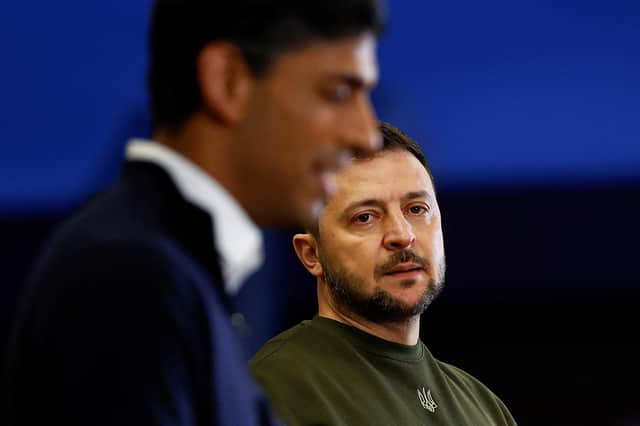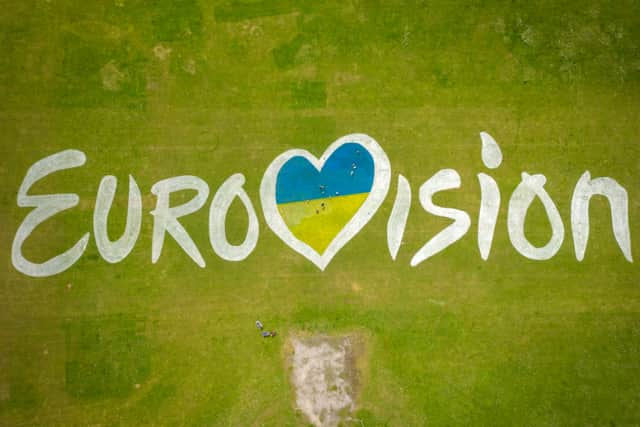Eurovision political controversies over the years as Rishi Sunak ‘disappointed’ by Zelenskyy address ban
People in this article


Ahead of tomorrow’s grand final, Eurovision bosses have decided to block Ukrainian President Volodymyr Zelensky from giving an address while the acts perform in the Song Contest in Liverpool.
As a result of the European Broadcasting Union’s (EBU) move to ban Zelensky from making a broadcast, the UK’s Prime Minister Rishi Sunak has been critical stating he is ‘disappointed’ as the president’s motives are not political but ‘fundamental’.
Advertisement
Hide AdAdvertisement
Hide AdMr Sunak’s comments come as Liverpool is acting as host for the Eurovision Song Contest on behalf of Ukraine who won in Turin, Italy last year but were unable to act as comperes due to the on-going war.
The prime minister concluded voicing his thoughts on the ban by suggesting that the EBU knew Zelensky’s views on freedom and values were all in good faith after they ‘rightly suspended Russia’ from last year’s competition, but also recognised that the bosses would not change their decision on incorporating any political act in the broadcast.


Despite the EBU’s best attempts at keeping politics out of the song contest in its 66 year history as seen by Zelensky’s ban, the policy has not always prevailed - PeopleWorld takes a look.
1974
The year was 1974 and Swedish band ABBA had just clinched the title of the Eurovision Song Contest with ‘Waterloo’ sparking a long-running career with radio plays, movie credits and gigs.
Advertisement
Hide AdAdvertisement
Hide AdHowever, they were not the only one to have their anthem played on the radio as 18 days after the Song Contest concluded, a Lisbon radio station played Portugal’s Eurovision entry, namely ‘E Depois Do Adeus’ by Paulo de Carvalho (who tied for last place) as a coded signal for military forces to overthrow the authoritarian government.
2005
The list of Eurovision entries has normally expanded over the six decade history however alike Russia being banned last year, Lebanon was forced to withdraw and suffer a three-year ban from the contest due to the country’s state-owned broadcaster prohibiting the playback of Israeli content such as the song ‘Quand Tout S’enfuit’.
While Lebanon has since not returned to Eurovision, Lebanese-born singer Mika acted as one of the hosts last year in Italy.
2019
Eurovision bosses warned the Icelandic techno/ punk rock band Hatari, who often express political views in their songs, to not bring political sentiments such as their views about Israeli occupation.
Advertisement
Hide AdAdvertisement
Hide AdHatari complied to some extent by leaving their views out of their lyrics and performance, however when they appeared in the green room during the voting process and held up a Palestine flag, the EBU were quick to fine them $5,260.
2021
Ever wonder how the songs are chosen for Eurovision? Well, they must get checked by the EBU to see if they keep ‘inside the lines’ as such, which Belarus failed to do on several occasions last year.
The band Galasy ZMesta’s first entry mocked protests against the country’s leader before they amended their song slightly to one that included an alleged homophobic reference and continued political references. They have since been expelled after their membership was initially suspended.
Comment Guidelines
National World encourages reader discussion on our stories. User feedback, insights and back-and-forth exchanges add a rich layer of context to reporting. Please review our Community Guidelines before commenting.
